Working Group Algorithms for Computer Vision, Imaging and Data Analysis
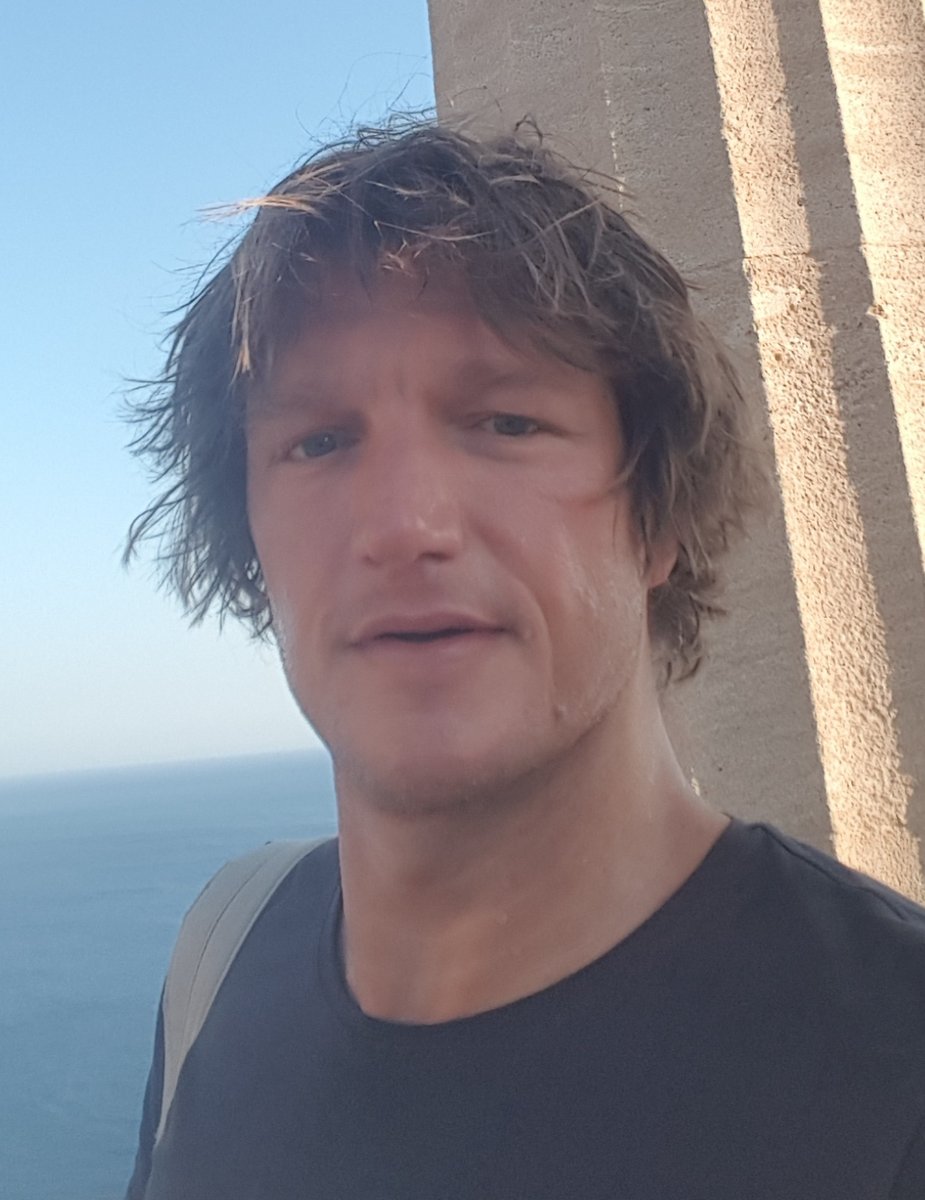
Andreas Weinmann
Andreas Weinmann received the Diplom degree in Mathematics and Computer Science (minor) from Technische Universität München, in 2006, and the PhD degree from Technische Universität Graz, in 2010. He worked as a researcher with the Technische Universtät München and with the Helmholtz Center Munich. Since 2015, he is a professor for Mathematics with focus on Image Processing at Hochschule Darmstadt.
His research interests lie in the intersection of Mathematics, Computer Science and Engineering. In particular, he is interested in the development and application of algorithms in Signal and Image Processing/Computer Vision and in Biomedical Imaging. Considered application domains are for instance Magnetic Particle Imaging and Raman Spectroscopy. Further interests are the modeling and analysis of the developed algorithms. The employed methodology includes numerical optimization, variational regularization of inverse problems and machine learning based on Neural Networks.
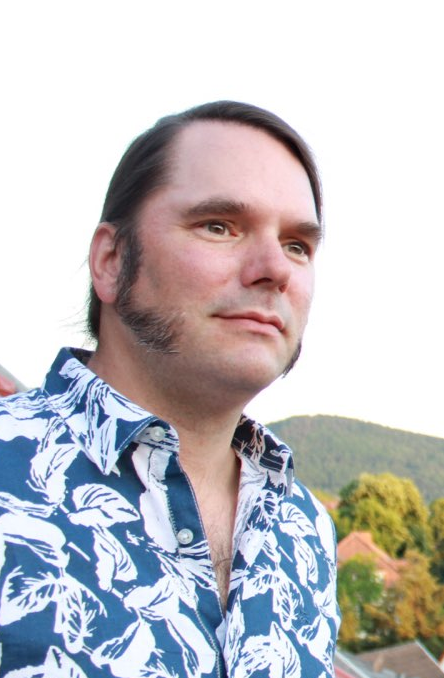
Thomas März
Thomas März received his Diplom degree in Applied Mathematics with minors Computer Science and Electrical Engineering in 2005, and his PhD degree in 2010 both from Technische Universität München. He worked as postdoctoral researcher at the Oxford Centre for Collaborative Applied Mathematics from 2010 to 2014. After that, from 2014 to 2018, he was as senior software engineer with Roxar Ltd. (Oxford) and worked on the further development of Roxar's oil reservoir simulator. Since 2018 he is professor of Mathematics at Hochschule Darmstadt with focus on Applied Mathematics in Engineering.
His research interests are in the overlap of the areas of Numerical Analysis, Mathematical Modeling, Computer Science and Engineering. He focuses on the mathematical modeling of technical problems and their computer aided solution through the development of robust and efficient numerical algorithms. Applications include interpolation of missing data in signals and images (image inpainting), denoising on curved surfaces as well as inverse problems in imaging.
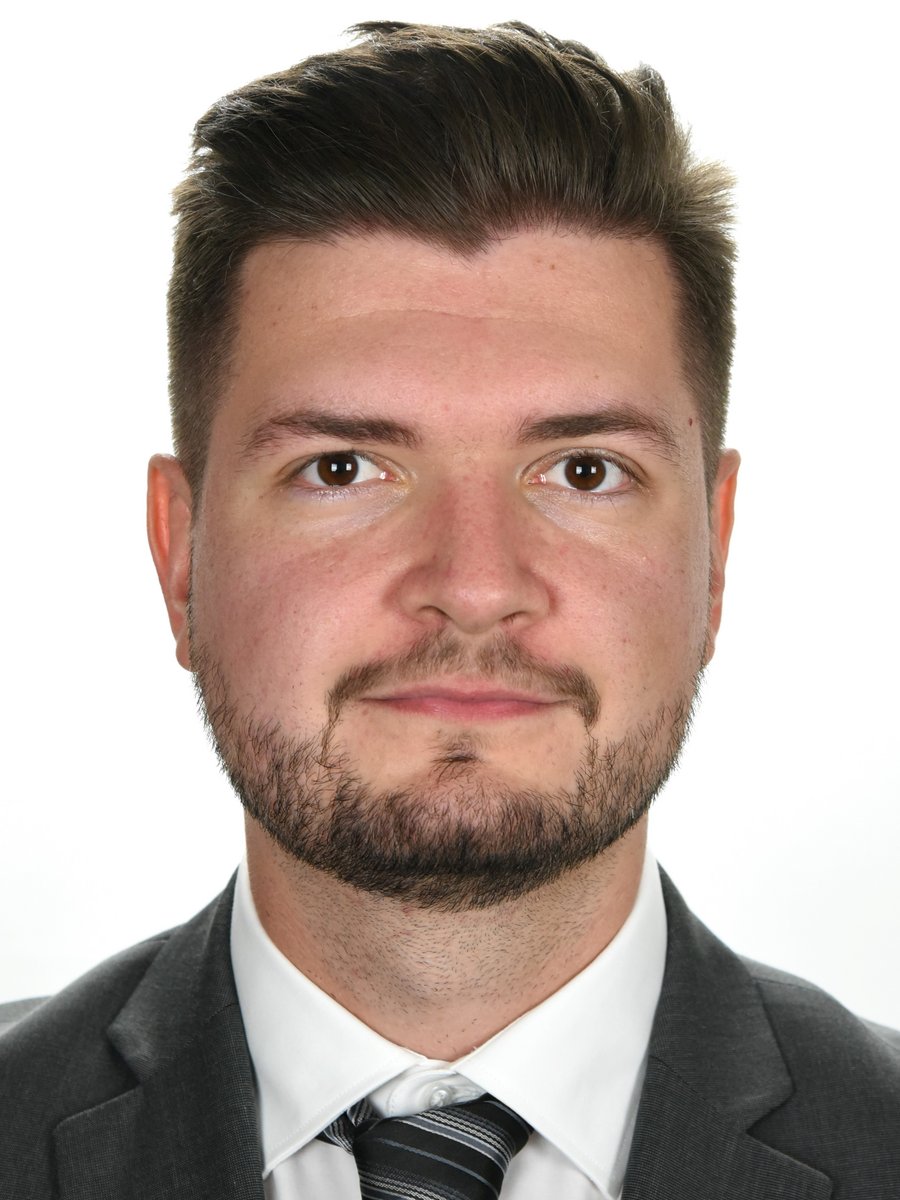
Vladyslav Gapyak
Vladyslav Gapyak received both his Bachelor's and Master's degree in Mathematics at the University of Padua in 2019 and in 2021. Since 2022 he pursues his PhD at Hochschule Darmstadt.
In his research he adresses modeling and regularization problems arising in Magnetic Particle Imaging. He considers classical regularization techniques as well as recently developed approaches based on machine learning.
Vladysav Gapyak, doctoral student of Prof. Andreas Weinmann and Prof. Thomas März, received his doctorate summa cum laude on 15 January 2026. The title of his thesis is ‘Robust and Efficient Algorithms for Image Reconstruction with Applications to Magnetic Particle Imaging’.
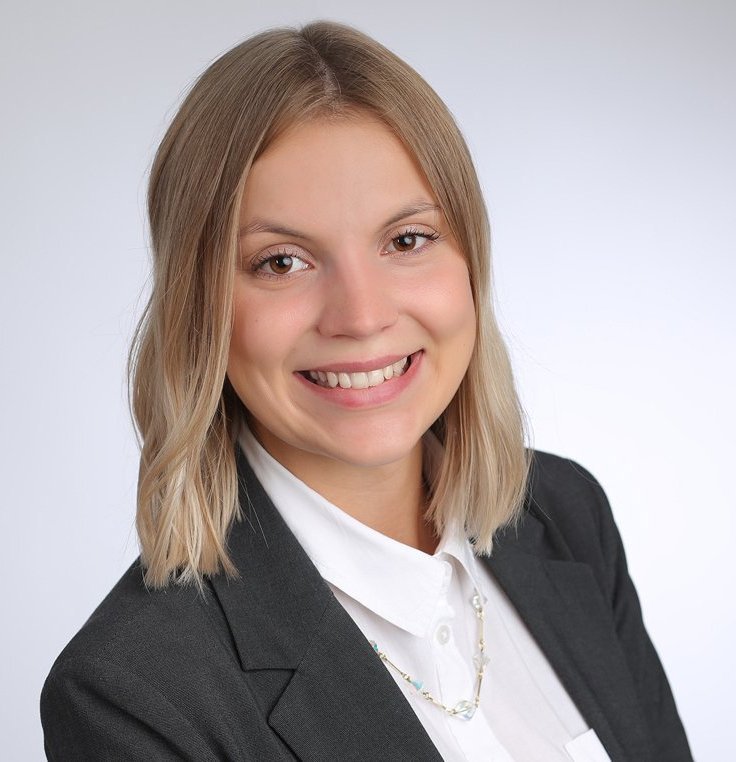
Tamara Dieter
Tamara Dieter received her Bachelor's degree in Mathematics from the University of Applied Sciences Darmstadt in 2018, followed by a Master's degree in Mathematics in 2020, from the same institution. Since 2021, Tamara has been working on a collaborative project between the University and the German Aerospace Center (DLR), with a focus on drone detection for the protection of terrestrial infrastructures.
Her research is centered around visual object detection (with a particular emphasis on drone detection) using deep learning techniques and contextual information. She also focuses on game-based simulations for the generation of synthetic training data and the evaluation of their effectiveness for real-world application (i.e., simulation-reality gap quantification and reduction).
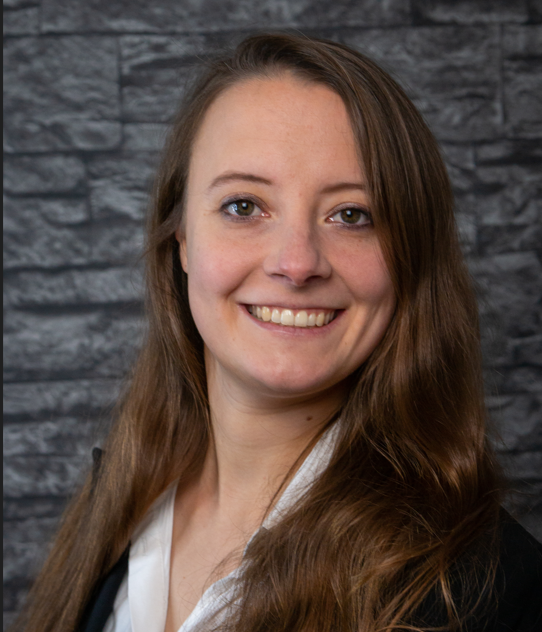
Vanessa Süßle
Vanessa Süßle received a Bachelor's in Computer Science from Goethe University Frankfurt in 2019, and a Master's degree in Data Science from Hochschule Darmstadt in 2022. Since 2022 she is employed at Hochschule Darmstadt working on the automatic analysis of camera trap data.
Her current work focuses on the individual identification of fur-patterened animal species in cooperation with the University of KwaZulu-Natal and the PanAfrican Programme: The Cultured Chimpanzee.
She considers classical feature matching techniques as well as different neural network architectures.
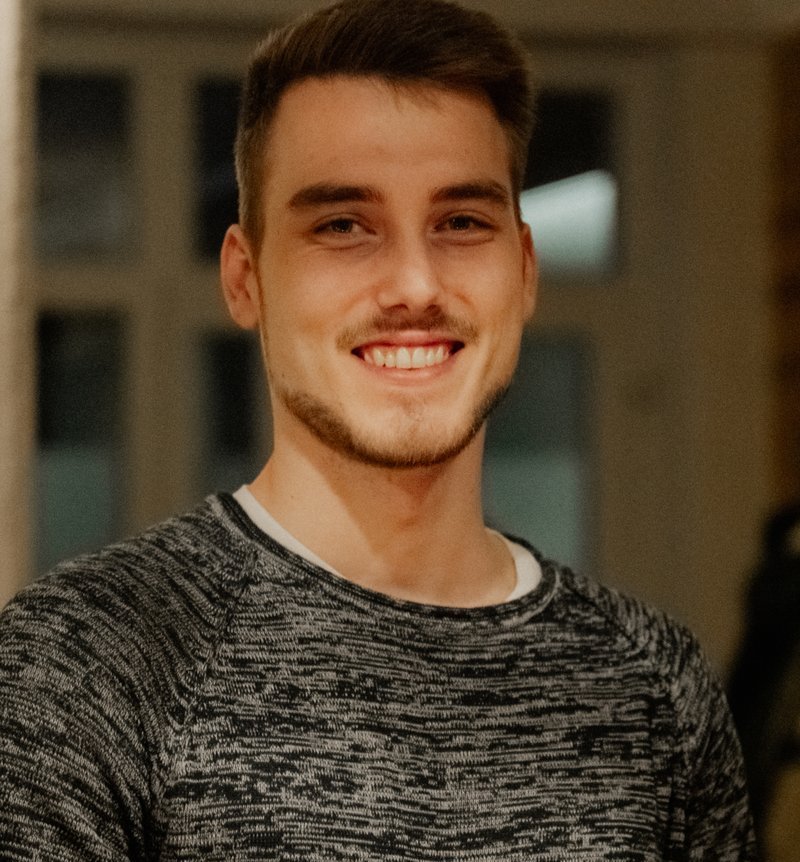
Tim Selig
Tim Selig received his Bachelor´s degree in Industrial Mathematics in 2020 at the FHWS in Schweinfurt, and a Master´s degree in Applied Mathematics and Physics from Technische Hochschule Nürnberg in 2022.
Since July of 2022 he is working on the regularization of inverse problems with application to biomedical imaging modalities. He focuses primarily on methods based on machine learning.
Marcel Stark
Marcel Stark received both his bachelor’s and master’s degree in mechanical engineering at the Darmstadt Universitity of Applied Scienes in 2019 and 2022. He has been employed at Darmstadt University of Applied Sciences since 2023.
His current work deals with the analysis of Raman spectroscopic data with respect to the quantitative determination of the process temperature and the molar fraction of the detected gas species. He considers both classical and modern machine learning methods.
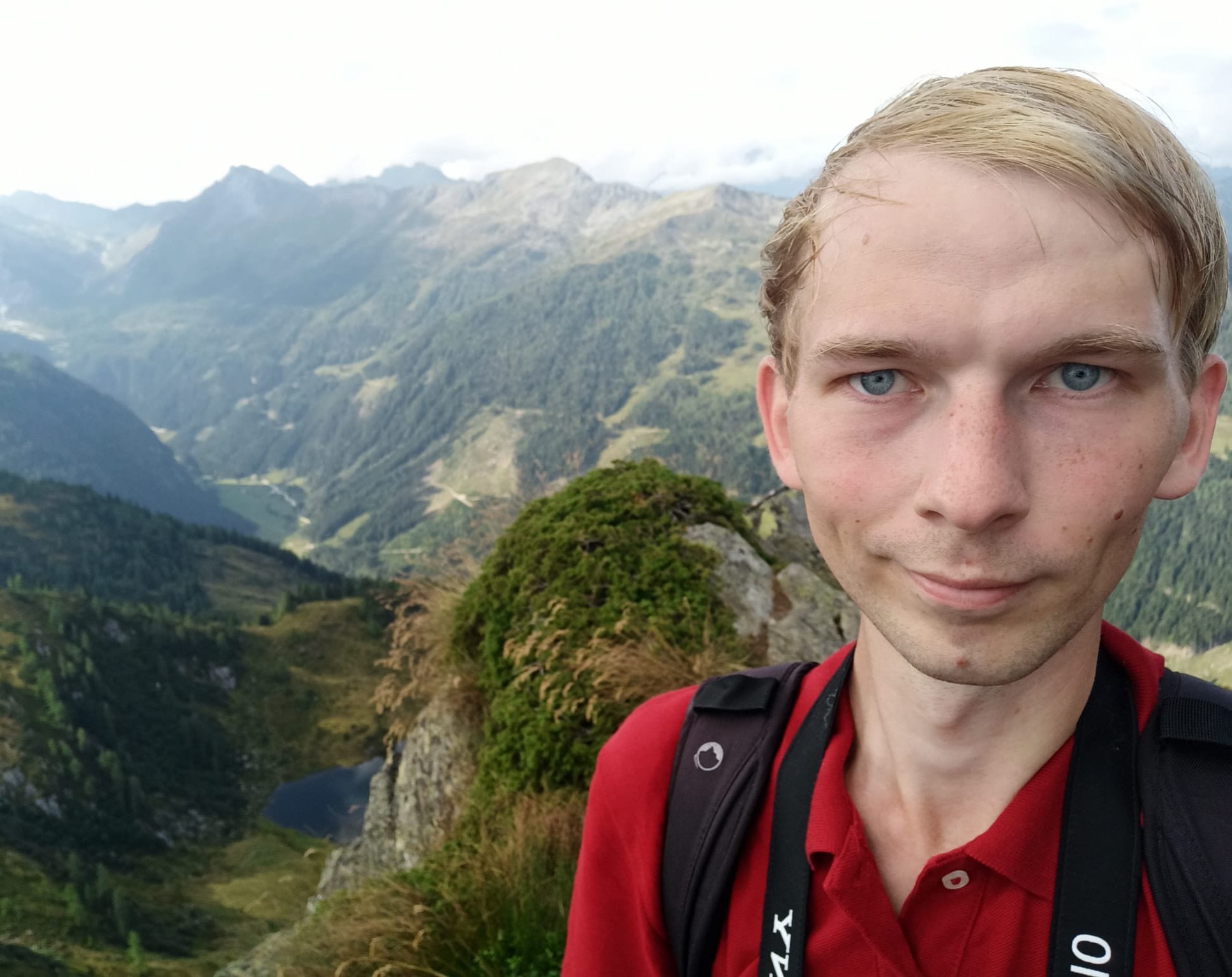
Vladyslav Polushko
Vladyslav Polushko completed both his Bachelor's and Master's degree in Optical Technology and Image Processing at the the University of Applied Technology Darmstadt in 2018 and 2021.
Currently, he works with Deep Learning methods for Analysis of Remote Sensing images. The research is being conducted in collaboration with Fraunhofer ITWM in Kaiserslautern.
Topics
We all acquire data to get information, e.g., we take pictures with our mobile phone's camera. Physicians use imaging devices to infer on person's health conditions, scientists use microscopic data to learn about small organisms, and engineers use imaging based on spectroscopic methods to do diagnostics for chemical reactions.
What is common to all these situations is that the data measured does not directly give the information one is interested in; the measured data needs to be processed and the required information needs to be extracted.
The central topic of ACIDA is the development and application of algorithmic solutions to such kind of problems in Computer Vision, Imaging and related Data Analysis problems.
Considered research topics are as follows:
- Variational methods of Bayesian MAP estimation type for segmentation, denoising, regularization and reconstruction
- PDE and/or variational methods for data completion/inpainting problems; PDE-models on curved surfaces
- Reconstruction techniques for the emerging imaging modality Magnetic Particle Imaging (MPI)
- Analysis of Raman spectroscopic data using taylored classical and machine-learning based approaches
- Algorithms for nonlinear data such as phase angles, directions, poses, and positive matrices (nerve fibre orientations) based on differential geometry;
- Developmemt of algorithmic solutions for Computer Vision problems based on deep learning frameworks (e.g., involving specific segmentation/object tasks).
From a methodological side, we use methods of scientific computing, in particular of numerical optimization. We develop and employ iterative schemes, dynamic programming as well as derivative based methods.
Publications
- Quality-Enhancing Techniques for Model-Based Reconstruction in Magnetic Particle Imaging; V. Gapyak, T. März, A. Weinmann; Mathematics 2022, 10(18), 3278
- Development of a Raman spectrometer for the characterization of gaseous hydrocarbons at high temperatures; K. Dieter, K. Koschnick, J. Lill, G. Magnotti, A. Weinmann, A. Dreizler, D. Geyer; Journal of Quantitative Spectroscopy and Radiative Transfer Vol. 277; (2022); www.sciencedirect.com/science/article/abs/pii/S0022407321004702
- Clothoid fitting and geometric Hermite subdivision; U. Reif, A. Weinmann; Advances in Computational Mathematics 47 (4), 1-22; (2021)
- Iterative Potts minimization for the recovery of signals with discontinuities from indirect measurements: the multivariate case; L. Kiefer, M. Storath, A. Weinmann; Foundations of Computational Mathematics 21 (3), 649-694; (2021)
- Multi-channel Potts-based reconstruction for multi-spectral computed tomography; L. Kiefer, S. Petra, M. Storath, A. Weinmann; Inverse Problems 37 (4), 045004; (2021)
- PALMS Image Partitioning-A New Parallel Algorithm for the Piecewise Affine-Linear Mumford-Shah Model; L. Kiefer, M. Storath, A. Weinmann; Image Processing On Line 10, 124-149; (2020)
- Handbook of Variational Methods for Nonlinear Geometric Data; P. Grohs, M. Holler, A. Weinmann; Springer Nature; (2020)
- An Algorithm for Second Order Mumford-Shah Models Based on a Taylor Jet Formulation; L. Kiefer, M. Storath, A. Weinmann; SIAM Journal on Imaging Sciences 13 (4), 2307-2360; (2020); epubs.siam.org/doi/abs/10.1137/19M1300959
- Manifold-Valued Data in Medical Imaging Applications; M. Baust, A. Weinmann; Handbook of Variational Methods for Nonlinear Geometric Data, 613-647; Springer; 2020
- Non-smooth variational regularization for processing manifold-valued data; M. Holler, A. Weinmann; Handbook of Variational Methods for Nonlinear Geometric Data, 51-93; (2020)
- Wavelet sparse regularization for manifold-valued data; M. Storath, A. Weinmann; Multiscale Modeling & Simulation 18 (2), 674-706; (2020)
- Smoothing for signals with discontinuities using higher order Mumford–Shah models; M. Storath, L. Kiefer, A. Weinmann; Numerische Mathematik 143 (2), 423-460; (2019)
- An efficient algorithm for the piecewise affine-linear Mumford-Shah model based on a Taylor jet splitting; L. Kiefer, M. Storath, A. Weinmann; IEEE Transactions on Image Processing 29, 921-933; (2019)
- Direct MRI Segmentation from k-Space Data by Iterative Potts Minimization; L. Kiefer, S. Petra, M. Storath, A. Weinmann; International Conference on Scale Space and Variational Methods in Computer Vision; (2019)
- Total variation regularization of pose signals with an application to 3D freehand ultrasound; M. Esposito, C. Hennersperger, R. Göbl, L. Demaret, M. Storath, N. Navab, M. Baust, A. Weinmann; IEEE Transactions on Medical Imaging 38 (10), 2245-2258; (2019)
- Fast piecewise-affine motion estimation without segmentation; D. Fortun, M. Storath, D. Rickert, A. Weinmann, M. Unser; IEEE Transactions on Image Processing 27 (11), 5612-5624; (2018)
- Variational regularization of inverse problems for manifold-valued data; M. Storath, A. Weinmann; Information and Inference (arXiv preprint arXiv:1804.10432); (2018)
- Mathematical Analysis of the 1D Model and Reconstruction Schemes for Magnetic Particle Imaging; W. Erb, A. Weinmann, M. Ahlborg, C. Brandt, G. Bringout, T. M. Buzug, J. Frikel, C. Kaethner, T. Knopp, T. März, M. Möddel, M. Storath, and A. Weber; Inverse Problems, 34, 21 pages; (2018)
- Model-based learning of local image features for unsupervised texture segmentation; M. Kiechle, M. Storath, A. Weinmann, M. Kleinsteuber; IEEE Transactions on Image Processing 27 (4), 1994-2007; (2018)
- Total generalized variation for manifold-valued data; K. Bredies, M. Holler, M. Storath, A. Weinmann; SIAM Journal on Imaging Sciences 11 (3), 1785-1848; (2018)
- Variational Methods for the Reconstruction of Signals with Discontinuities; A. Weinmann; (2018)
- Jump-penalized least absolute values estimation of scalar or circle-valued signals; M. Storath, A. Weinmann, M. Unser; Information and Inference: A Journal of the IMA 6 (3), 225-245; (2017)
- Fast segmentation from blurred data in 3D fluorescence microscopy; M. Storath, D. Rickert, M. Unser, A. Weinmann; IEEE Transactions on Image Processing 26 (10), 4856-4870; (2017)
- Fast median filtering for phase or orientation data; M. Storath, A. Weinmann; IEEE Transactions on Pattern Analysis and Machine Intelligence 40 (3), 639-652; (2017); www.researchgate.net/profile/Martin_Storath/publication/316077363_Fast_Median_Filtering_for_Phase_or_Orientation_Data/links/5a8190f4aca2726ad848f679/Fast-Median-Filtering-for-Phase-or-Orientation-Data.pdf
- Edge preserving and noise reducing reconstruction for magnetic particle imaging; M. Storath, C. Brandt, M. Hofmann, T. Knopp, J. Salamon, A. Weber, A. Weinmann; IEEE Transactions on Medical Imaging 36 (1), 74-85; (2016)
- A second-order TV-type approach for inpainting and denoising higher dimensional combined cyclic and vector space data; R. Bergmann, A. Weinmann; Journal of Mathematical Imaging and Vision 55 (3), 401-427; (2016)
- Mumford–Shah and Potts regularization for manifold-valued data; A. Weinmann, L. Demaret, M. Storath; Journal of Mathematical Imaging and Vision 55 (3), 428-445; (2016)
- Joint segmentation and shape regularization with a generalized forward–backward algorithm; A. Stefanoiu, A. Weinmann, M. Storath, N. Navab, M. Baust; IEEE Transactions on Image Processing 25 (7), 3384-3394; (2016)
- Combined tensor fitting and TV regularization in diffusion tensor imaging based on a Riemannian manifold approach; M. Baust, A. Weinmann, M. Wieczorek, T. Lasser, M. Storath, N. Navab; IEEE Transactions on Medical Imaging 35 (8), 1972-1989; (2016)
- Model-based Reconstruction for Magnetic Particle Imaging in 2D and 3D; T. März, A. Weinmann; Inverse Problems and Imaging, 10, pp. 1087–1110; (2016)
- An Embedding Technique for the Solution of Reaction–Diffusion Equations on Algebraic Surfaces with Isolated Singularities; T. März, P. Rockstroh, S. J. Ruuth; Journal of Mathematical Analysis and Applications, 436, pp. 911–943; (2016)
- Total variation regularization of shape signals; M. Baust, L. Demaret, M Storath, N. Navab, A. Weinmann; Proceedings of the IEEE Conference on Computer Vision and Pattern Recognition; (2015)
- The L1-Potts Functional for Robust Jump-Sparse Reconstruction; A. Weinmann, M. Storath, L. Demaret; SIAM Journal on Numerical Analysis 53 (1), 644-673; (2015)
- A Well-posedness Framework for Inpainting Based on Coherence Transport; T. März; Foundations of Computational Mathematics, 15, pp. 973–1033; (2015)
- Unsupervised texture segmentation using monogenic curvelets and the Potts model; M. Storath, A. Weinmann, M. Unser; 2014 IEEE International Conference on Image Processing (ICIP), 4348-4352; (2014)
- Jump-sparse and sparse recovery using Potts functionals; M. Storath, A. Weinmann, L. Demaret; IEEE Transactions on Signal Processing 62 (14), 3654-3666; (2014)
- Second order differences of cyclic data and applications in variational denoising; R. Bergmann, F. Laus, G. Steidl, A. Weinmann; SIAM Journal on Imaging Sciences 7 (4), 2916-2953; (2014)
- Fast partitioning of vector-valued images; M. Storath, A. Weinmann; SIAM Journal on Imaging Sciences 7 (3), 1826-1852; (2014)
- Total variation regularization for manifold-valued data; A. Weinmann, L. Demaret, M. Storath; SIAM Journal on Imaging Sciences 7 (4), 2226-2257; (2014); epubs.siam.org/doi/abs/10.1137/130951075
- A Volume-Based Method for Denoising on Curved Surfaces; H. Biddle, I. von Glehn, C. B. Macdonald, T. März; Proc. ICIP 2013, 20th IEEE International Conference on Image Processing, pp. 529–533; (2013)
- Subdivision schemes with general dilation in the geometric and nonlinear setting; A. Weinmann; Journal of Approximation Theory 164 (1), 105-137; (2012)
- Interpolatory multiscale representation for functions between manifolds; A. Weinmann; SIAM Journal on Mathematical Analysis 44 (1), 162-191; (2012); epubs.siam.org/doi/10.1137/100803584
- Calculus on Surfaces with General Closest Point Functions; T. März, C. B. Macdonald; SIAM Journal on Numerical Analysis, 50, pp. 3303–3328; (2012); epubs.siam.org/doi/abs/10.1137/120865537
- Image Inpainting Based on Coherence Transport with Adapted Distance Functions; T. März; SIAM Journal on Imaging Sciences, 4, pp. 981–1000; (2011); epubs.siam.org/doi/abs/10.1137/100807296
- Lipschitz spaces with respect to Jacobi translation; A. Weinmann, R. Lasser; Mathematische Nachrichten 284 (17‐18), 2312-2326; (2011)
- Convergence and smoothness analysis of subdivision rules in Riemannian and symmetric spaces; J. Wallner, E. Nava Yazdani, A. Weinmann; Advances in Computational Mathematics 34 (2), 201-218; (2011)
- Nonlinear subdivision schemes on irregular meshes; A. Weinmann; Constructive Approximation 31 (3), 395-415; (2010)
- Analysis of nonlinear geometric subdivision schemes on polyhedral meshes; A. Weinmann; (2010)
- First Order Quasi-Linear PDEs with BV Boundary Data and Applications to Image Inpainting; T. März; Logos Verlag Berlin; (2010)
- Fast Image Inpainting Based on Coherence Transport; F. Bornemann, T. März; Journal of Mathematical Imaging and Vision, 28, pp. 259–278; (2007)